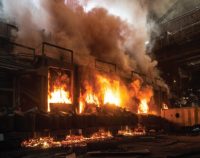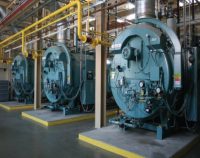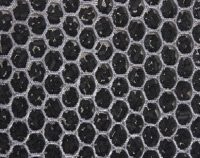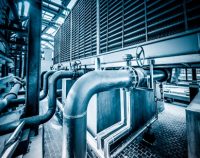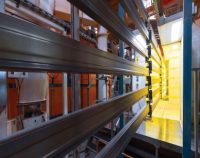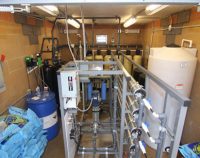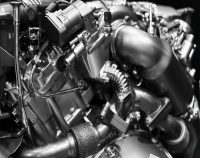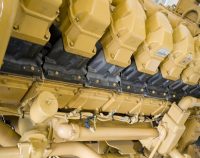Showing 1–20 of 58 results
Best Practices for Energy-Efficient Data Center Design: 4 PDH
$24.00 Add to cartIn this course the student will understand the principles, strategies, and technologies used to design energy-efficient data centers, including IT systems, environmental controls, cooling systems, air management, and energy performance metrics.Instructor: Juan Pesante, PESPECIFIC KNOWLEDGE OR SKILL OBTAINED
This course teaches the following specific knowledge and skills:
- Identify energy-saving IT equipment and configurations
- Explain air management for optimal cooling efficiency
- Apply ASHRAE thermal guidelines to design decisions
- Evaluate cooling systems and economizer usage
- Analyze energy efficiency metrics like PUE and ERE
- Design power distribution systems for minimal energy loss
CERTIFICATE OF COMPLETION
You will be able to immediately print a certificate of completion after passing a 20 question multiple-choice quiz. The quiz can be retaken unlimited times until a passing grade of 70% or better is earned. This course satisfies four (4) hours of professional development (PDH).
Preview CourseClick “Preview Course” to view prior to purchaseClick “Add to Cart” to purchaseContinuous Energy Improvement in Motor Driven Systems: 5 PDH
$30.00 Add to cartIn this course the student will understand the principles, strategies, and best practices for achieving continuous energy improvement in motor-driven systems. They will learn how to develop and implement motor management programs, assess motor system efficiency, apply energy-saving technologies, and adopt life-cycle cost approaches to decision-making.Instructor: Seth Grablow, PESPECIFIC KNOWLEDGE OR SKILL OBTAINED
This course teaches the following specific knowledge and skills:
- Understand motor management’s impact on energy and operational costs.
- Apply life-cycle costing in motor selection and replacement decisions.
- Identify and implement energy efficiency opportunities in motor systems.
- Utilize MotorMaster+ for energy and cost-saving analyses.
- Develop and execute a comprehensive motor management action plan.
- Apply ISO 50001 principles for continuous energy improvement.
CERTIFICATE OF COMPLETION
You will be able to immediately print a certificate of completion after passing a 20 question multiple-choice quiz. The quiz can be retaken unlimited times until a passing grade of 70% or better is earned. This course satisfies five (5) hours of professional development (PDH).
Preview CourseClick “Preview Course” to view prior to purchaseClick “Add to Cart” to purchaseFuel Cell Technology and Performance: 4 PDH
$24.00 Add to cartIn this course the student will understand the fundamental principles, design, operation, and performance characteristics of various fuel cell technologies, including their system components, fuel processing, and real-world applications.Instructor: Seth Grablow, PESPECIFIC KNOWLEDGE OR SKILL OBTAINED
This course teaches the following specific knowledge and skills:
- Explain fuel cell electrochemical operation principles.
- Compare different fuel cell types and characteristics.
- Evaluate performance parameters and efficiency losses.
- Analyze system components and balance-of-plant requirements.
- Assess modeling approaches and system optimization strategies.
- Interpret fuel cell application data and deployment scenarios.
CERTIFICATE OF COMPLETION
You will be able to immediately print a certificate of completion after passing a 20 question multiple-choice quiz. The quiz can be retaken unlimited times until a passing grade of 70% or better is earned. This course satisfies four (4) hours of professional development (PDH).
Preview CourseClick “Preview Course” to view prior to purchaseClick “Add to Cart” to purchaseGeothermal Heat Pump Systems: 4 PDH
$24.00 Add to cartIn this course the student will understand how geothermal (geoexchange) heat pump systems function, including heat transfer mechanisms, system components, ground loop configurations, performance considerations, and environmental and economic impacts.Instructor: Seth Grablow, PESPECIFIC KNOWLEDGE OR SKILL OBTAINED
This course teaches the following specific knowledge and skills:
- Describe geothermal system components and heat transfer processes
- Compare open- and closed-loop ground heat exchangers
- Analyze thermal conductivity and drilling impacts on loop sizing
- Evaluate system configurations for building-specific needs
- Calculate system payback and operating cost savings
- Interpret case studies and performance outcomes of real installations
CERTIFICATE OF COMPLETION
You will be able to immediately print a certificate of completion after passing a 20 question multiple-choice quiz. The quiz can be retaken unlimited times until a passing grade of 70% or better is earned. This course satisfies four (4) hours of professional development (PDH).
Guide to Chilled Water Plant Design: 5 PDH
$30.00 Add to cartIn this course the student will understand how to design, operate, and optimize chilled water plants with respect to energy efficiency, load variability, system configurations, equipment characteristics, and instrumentation strategies. They will develop a systems-level understanding of chilled water distribution, including how to manage load uncertainty, evaluate life-cycle costs, and integrate effective controls.Instructor: Seth Grablow, PESPECIFIC KNOWLEDGE OR SKILL OBTAINED
This course teaches the following specific knowledge and skills:
- Estimate cooling loads and profiles accurately.
- Select efficient chillers and associated components.
- Compare constant vs. variable flow systems.
- Apply control sequences for optimal operation.
- Evaluate system performance with instrumentation.
- Design for future capacity and redundancy needs.
CERTIFICATE OF COMPLETION
You will be able to immediately print a certificate of completion after passing a 20 question multiple-choice quiz. The quiz can be retaken unlimited times until a passing grade of 70% or better is earned. This course satisfies five (5) hours of professional development (PDH).
Preview CourseClick “Preview Course” to view prior to purchaseClick “Add to Cart” to purchaseIntroduction to Composite Materials: 3 PDH
$18.00 Add to cartIn this course the student will understand the fundamental concepts, structures, classifications, and applications of composite materials. They will learn how different fibre and matrix combinations influence properties, and they will grasp the benefits and limitations of thermoset and thermoplastic composites as well as reinforcement mechanisms.Instructor: Seth Grablow, PESPECIFIC KNOWLEDGE OR SKILL OBTAINED
This course teaches the following specific knowledge and skills:
- Define composite materials and their constituent components.
- Compare thermoset and thermoplastic matrices.
- Classify common fibre reinforcements and their uses.
- Describe composite processing and manufacturing techniques.
- Analyze mechanical properties of composites.
- Identify applications across multiple engineering sectors.
CERTIFICATE OF COMPLETION
You will be able to immediately print a certificate of completion after passing a 15 question multiple-choice quiz. The quiz can be retaken unlimited times until a passing grade of 70% or better is earned. This course satisfies three (3) hours of professional development (PDH).
Preview CourseClick “Preview Course” to view prior to purchaseClick “Add to Cart” to purchaseLightning Protection Design and Standards: 5 PDH
$30.00 Add to cartIn this course the student will understand the principles, standards, risks, and design methods of lightning protection systems, including external and internal protection strategies, materials selection, and risk assessment based on IEC 62305 standards.Instructor: Juan Pesante, PESPECIFIC KNOWLEDGE OR SKILL OBTAINED
This course teaches the following specific knowledge and skills:
- Explain lightning physics and flash mechanics.
- Apply IEC 62305 lightning protection standards.
- Design air-termination and grounding systems.
- Evaluate lightning risks using risk management frameworks.
- Select appropriate materials for lightning protection systems.
- Integrate surge protection devices into power systems.
CERTIFICATE OF COMPLETION
You will be able to immediately print a certificate of completion after passing a 20 question multiple-choice quiz. The quiz can be retaken unlimited times until a passing grade of 70% or better is earned. This course satisfies five (5) hours of professional development (PDH).
Preview CourseClick “Preview Course” to view prior to purchaseClick “Add to Cart” to purchaseRenewable Energy – Ocean Energy Technology: 3 PDH
$18.00 Add to cartIn this course the student will gain a comprehensive understanding of the principles, technologies, and challenges involved in harvesting ocean energy—wave, tidal, marine current, and ocean thermal energy—and their potential for integration into national renewable energy strategies.Instructor: Juan Pesante, PESPECIFIC KNOWLEDGE OR SKILL OBTAINED
This course teaches the following specific knowledge and skills:
- Identify major types of ocean energy technologies.
- Describe wave, tidal, and thermal conversion methods.
- Evaluate global and U.S. ocean energy potential.
- Analyze technology readiness and commercialization efforts.
- Examine regulatory and permitting challenges.
- Compare energy efficiency and environmental impacts.
You will be able to immediately print a certificate of completion after passing a 20 question multiple-choice quiz. The quiz can be retaken unlimited times until a passing grade of 70% or better is earned. This course satisfies three (3) hours of professional development (PDH).
Preview CourseClick “Preview Course” to view prior to purchaseClick “Add to Cart” to purchaseVacuum Technology and Applications: 5 PDH
$30.00 Add to cartIn this course the student will gain a comprehensive understanding of vacuum technology, including its principles, terminology, pump technologies, measurement methods, system design, leak detection, and application across industries. They will learn how vacuum environments are created, maintained, and optimized for various engineering and industrial processes.Instructor: Seth Grablow, PESPECIFIC KNOWLEDGE OR SKILL OBTAINED
This course teaches the following specific knowledge and skills:
- Understand vacuum science principles and key terminology.
- Classify vacuum pump technologies by pressure range and application.
- Explain vacuum measurement methods and selection criteria.
- Analyze vacuum system design and sizing considerations.
- Apply safety protocols for hazardous vacuum applications.
- Evaluate vacuum applications across chemical, pharmaceutical, and industrial sectors.
CERTIFICATE OF COMPLETION
You will be able to immediately print a certificate of completion after passing a 20 question multiple-choice quiz. The quiz can be retaken unlimited times until a passing grade of 70% or better is earned. This course satisfies five (5) hours of professional development (PDH).
Preview CourseClick “Preview Course” to view prior to purchaseClick “Add to Cart” to purchaseAccident and Operational Safety Analysis: 4 PDH
$24.00 Add to cartIn this course the student will understand the fundamental concepts of accident dynamics, accident prevention, and accident analysis. The student will learn the theoretical bases of safety management and accident analysis, and the practical application of a Safety Management framework for an organization.Instructor: Raymond Bosek, PESPECIFIC KNOWLEDGE OR SKILL OBTAINED
This course teaches the following specific knowledge and skills:
- Explain accidents and accident models
- Discuss cause and effect relationships
- Understand human performance considerations
- Describe safety management systems
- Recognize accident types/ individual and systems
- Explain the design of accident investigations
CERTIFICATE OF COMPLETION
You will be able to immediately print a certificate of completion after passing a twenty (20) question multiple-choice quiz. The quiz can be retaken unlimited times until a passing grade of 70% or better is earned. This course satisfies four (4) professional development hours (PDH) of continuing education.
Preview CourseClick “Preview Course” to View Prior to PurchaseClick “Add to Cart” to Purchase and Access QuizBoiler Basics-Operation and Maintenance: 5 PDH
$30.00 Add to cartIn this course the student will understand steam generation, boilers and boiler components, and basic concepts in their operation and maintenance.Instructor: Seth Grablow, PESPECIFIC KNOWLEDGE OR SKILL OBTAINED
This course teaches the following specific knowledge and skills:
- Explain steam generation theory
- Explain boiler design requirements
- Discuss the different types of boilers
- Describe the different types of boiler fittings and accessories
- Identify the automatic controls associated with boilers
- Describe the different types of instruments and meters
- Explain the procedures associated with boiler water treatment and cleaning
- Describe the procedures for cleaning boiler firesides and watersides
- Describe the procedures associated with boiler maintenance
CERTIFICATE OF COMPLETION
You will be able to immediately print a certificate of completion after passing a 20 question multiple-choice quiz. The quiz can be retaken unlimited times until a passing grade of 70% or better is earned. This course satisfies five (5) hours of professional development (PDH).
Preview CourseClick “Preview Course” to view prior to purchaseClick “Add to Cart” to purchaseBuilding Envelope Impact on HVAC Energy Use: 3 PDH
$18.00 Add to cartHow airtight are the buildings you are responsible for? What is the energy load and indoor air quality like in your buildings? The only way to know is to perform a study. Despite common assumptions, measurements have shown that typical U.S. commercial buildings are not particularly airtight. In this course we present a recent simulation study on the impact of improving envelope airtightness in U.S. commercial buildings. You get documented, verifiable facts, report charts and graphs illustrating the findings, and a discussion from the report on the results of the study, Investigation of the Impact of Commercial Building Envelope Airtightness on HVAC Energy Use.Instructor: Seth Grablow, PEHow airtight are the buildings you are responsible for? What is the energy load and indoor air quality like in your buildings? The only way to know is to perform a study. Despite common assumptions, measurements have shown that typical U.S. commercial buildings are not particularly airtight.
In this course we present a recent simulation study on the impact of improving envelope airtightness in U.S. commercial buildings. You get documented, verifiable facts, report charts and graphs illustrating the findings, and a discussion from the report on the results of the study, Investigation of the Impact of Commercial Building Envelope Airtightness on HVAC Energy Use.
SPECIFIC KNOWLEDGE OR SKILL OBTAINED
This course teaches the following specific knowledge and skills:
- Discuss the reasons for performing a study
- Understand the method of analysis regarding building envelope tightness
- Describe the buildings used for the study
- Understand which climates allow for the most HVAC savings
- Explain the results of the study
CERTIFICATE OF COMPLETION
You will be able to immediately print a certificate of completion after passing a 10 question multiple-choice quiz. The quiz can be retaken unlimited times until a passing grade of 70% or better is earned. This course satisfies 3 professional development hours (PDH) of continuing education.
Preview CourseClick “Preview Course” to View Prior to PurchaseClick “Add to Cart” to Purchase and Access QuizCarbon Absorption of Volatile Organic Compounds: 3 PDH
$18.00 Add to cartCarbon adsorption is used in air pollution control to remove volatile organic compounds (VOCs) from low to medium concentration gas streams, when stringent outlet concentration must be met and/or recovery of the VOC is desired. This course covers the types of adsorbers, adsorption theory, and design procedures for carbon adsorption equipment.Instructor: Seth Grablow, PECarbon adsorption is used in air pollution control to remove volatile organic compounds (VOCs) from low to medium concentration gas streams, when stringent outlet concentration must be met and/or recovery of the VOC is desired. This course covers the types of adsorbers, adsorption theory, and design procedures for carbon adsorption equipment.
SPECIFIC KNOWLEDGE OR SKILL OBTAINED
This course teaches the following specific knowledge and skills:
- The types of carbon adsorption equipment and which are in most common use
- Define an adsorption isotherm and be able to recognize the equation for the Freundlich isotherm
- Adsorber sizing parameters
- Make adsorption and desorption time calculations
- Procedures for estimating carbon requirements
- Cost estimation procedures for carbon adsorption systems
CERTIFICATE OF COMPLETION
You will be able to immediately print a certificate of completion after passing a 20 question multiple-choice quiz. The quiz can be retaken unlimited times until a passing grade of 70% or better is earned. This course satisfies 3 professional development hours (PDH) of continuing education.
Preview CourseClick “Preview Course” to View Prior to PurchaseClick “Add to Cart” to Purchase and Access QuizChillers, Refrigerant Compressors, and Heating Systems: 5 PDH
$30.00 Add to cartThis course focuses on the equipment and equipment components used to generate heating and cooling. It does not include fans and pumps. This distinction is clear for most equipment types, such as unit heaters, boilers, and chillers. However, for packaged air-conditioning (AC) equipment the distinction can be subtle. Most packaged AC equipment is treated as a unit by performance rating procedures. Hence, separation of the fans is difficult. For this study, only the refrigerant compressors of packaged equipment are considered. Instructor: Seth Grablow, PEThis course focuses on the equipment and equipment components used to generate heating and cooling. It does not include fans and pumps. This distinction is clear for most equipment types, such as unit heaters, boilers, and chillers. However, for packaged air-conditioning (AC) equipment the distinction can be subtle. Most packaged AC equipment is treated as a unit by performance rating procedures. Hence, separation of the fans is difficult. For this study, only the refrigerant compressors of packaged equipment are considered.
SPECIFIC KNOWLEDGE OR SKILL OBTAINED
This course teaches the following specific knowledge and skills:
- To provide an accurate estimate of the energy used by primary cooling and heating equipment in the US commercial building sector
- To provide a physical understanding of the factors, which contribute to energy use by the equipment
- To provide a baseline estimate of current national energy use, which can be used for calculation of the national energy savings impact of various options for reducing energy usage
CERTIFICATE OF COMPLETION
You will be able to immediately print a certificate of completion after passing a 20 question multiple-choice quiz. The quiz can be retaken unlimited times until a passing grade of 70% or better is earned. This course satisfies 5 professional development hours (PDH) of continuing education.
Preview CourseClick “Preview Course” to View Prior to PurchaseClick “Add to Cart” to Purchase and Access QuizCoating Types and Characteristics of Metals: 3 PDH
$18.00 Add to cartIn this course the student will understand the characteristics and applications of various industrial coatings and metal finishes. Instructor: Seth Grablow, PESPECIFIC KNOWLEDGE OR SKILL OBTAINED
This course teaches the following specific knowledge and skills:
- Discuss various metal coating types and characteristics
- Explain film-forming mechanisms and binders
- Understand driers, pigments, solvents, and miscellaneous additives
- Explain zinc-rich coatings and VOCs
- Understand powder coating, thermal sprays, galvanizing, etc.
CERTIFICATE OF COMPLETION
You will be able to immediately print a certificate of completion after passing a fifteen (15) question multiple-choice quiz. The quiz can be retaken unlimited times until a passing grade of 70% or better is earned. This course satisfies three (3) professional development hours (PDH) of continuing education.
Preview CourseClick “Preview Course” to View Prior to PurchaseClick “Add to Cart” to Purchase and Access QuizConcepts for Advanced Electrical Knowledge & Practical Troubleshooting: 8 PDH
$40.00 Add to cartIn this course, applicable to all professional engineering backgrounds, the student will understand the concepts of electricity and mechanism and design of electronics. They will understand how electrical components work from theory to design to the operation of common industrial circuits with tips for practical troubleshooting.Instructor: Juan Pesante, PESPECIFIC KNOWLEDGE OR SKILL OBTAINED
This course teaches the following specific knowledge and skills:
- Discuss the concepts of electricity & electronic theory
- Understand electromagnetism and electromotive force
- Understand current, voltage, and resistance in circuits
- Explain DC & AC circuit analysis
- Discuss capacitance and inductance
- Understand DC & AC measuring instruments and concepts
- Explain circuit analysis and troubleshooting circuits
CERTIFICATE OF COMPLETION
You will be able to immediately print a certificate of completion after passing a 30 question multiple-choice quiz. The quiz can be retaken unlimited times until a passing grade of 70% or better is earned. This course satisfies eight professional development hours (PDH) of continuing education.
Preview CourseClick “Preview Course” to View Prior to PurchaseClick “Add to Cart” to Purchase and Access QuizConstruction Site Safety: 0.5 PDH
$6.00Original price was: $6.00.$0.00Current price is: $0.00. Add to cartIn this course the student will study the top ten construction site safety hazards. The student will understand the most common construction site safety hazards and the methods to mitigate these hazards to increase safety for all personnel.Instructor: Raymond Bosek, PEIn this course the student will study the top ten construction site safety hazards. The student will understand the most common construction site safety hazards and the methods to mitigate these hazards to increase safety for all personnel.
SPECIFIC KNOWLEDGE OR SKILL OBTAINED
This course teaches the following specific knowledge and skills:
- Identify common construction site hazards
- Discuss safety practices to decrease hazard risks
- Explain guidelines to increase hazard awareness and prevent accidents
- Discuss Personal Protective Equipment (PPE) and its uses
- Understand Hazard communication
- Utilize Safety Checklists
CERTIFICATE OF COMPLETION
You will be able to immediately print a certificate of completion after passing a 10 question multiple-choice quiz. The quiz can be retaken unlimited times until a passing grade of 70% or better is earned. This course satisfies 0.5 professional development hours (PDH) of continuing education.
Preview CourseClick “Preview Course” to View Prior to PurchaseClick “Add to Cart” to Purchase and Access QuizDesign of Small Water Systems: 3 PDH
$18.00 Add to cartThis course focuses on criteria for water source development, design of small water supply, treatment, and distribution systems. This professional engineer online course is from the U.S. Army Corps of Engineers manual on the Design of Small Water Systems. This manual provides information of interest to planners and designers of small water systems. The major emphasis of this course is on the design of systems that will be effective and reliable, requiring a level of operation and management activity commensurate with their physical size and the available sources.Instructor: Raymond Bosek, PEThis course focuses on criteria for water source development, design of small water supply, treatment, and distribution systems. This professional engineer online course is from the U.S. Army Corps of Engineers manual on the Design of Small Water Systems. This manual provides information of interest to planners and designers of small water systems. The major emphasis of this course is on the design of systems that will be effective and reliable, requiring a level of operation and management activity commensurate with their physical size and the available sources.
SPECIFIC KNOWLEDGE OR SKILL OBTAINED
This course teaches the following specific knowledge and skills:
- Preliminary Water System Planning and Design Considerations
- Water Quality Requirements (State, EPA, local)
- Water Quantity Requirements
- Water Source Options and Source Development
- Water Treatment Unit Operations such as Disinfection, Iron Removal
- Manganese Removal, Hardness Removal, Taste and Odor Removal
- Stability and Corrosion Control, Turbidity Removal, Color Removal, and many other technologies and their applications
CERTIFICATE OF COMPLETION
You will be able to immediately print a certificate of completion after passing a 20 question multiple-choice quiz. The quiz can be retaken unlimited times until a passing grade of 70% or better is earned. This course satisfies 3 professional development hours (PDH) of continuing education.
Preview CourseClick “Preview Course” to View Prior to PurchaseClick “Add to Cart” to Purchase and Access QuizDiesel Engine Fundamentals I: 3 PDH
$18.00 Add to cartPart I of a two-part series. This course provides the engineer the basic understanding of the operation and design of Diesel Engines. The student will learning learn the fundamentals from the earlier history to the basic components which make up all diesel engines today.Instructor: Seth Grablow, PEPart I of a two-part series. This course provides the engineer the basic understanding of the operation and design of Diesel Engines. The student will learning learn the fundamentals from the earlier history to the basic components which make up all diesel engines today.
SPECIFIC KNOWLEDGE OR SKILL OBTAINED
This course teaches the following specific knowledge and skills:
- Diesel engine history
- Differences to other combustible engines
- Major components
- Cooling systems
- Lubrication systems
- Fuel systems
CERTIFICATE OF COMPLETION
You will be able to immediately print a certificate of completion after passing a 25 question multiple-choice quiz. The quiz can be retaken unlimited times until a passing grade of 70% or better is earned. This course satisfies 3 professional development hours (PDH) of continuing education.
Preview CourseClick “Preview Course” to View Prior to PurchaseClick “Add to Cart” to Purchase and Access QuizDiesel Engine Fundamentals II: 3 PDH
$18.00 Add to cartPart II of a two-part series. This course provides the engineer the basic understanding of the operation and design of Diesel Engines. The student will learn in depth, the diesel engine operation including an overview of all basic components as well as the different cycles and the operation of all essential systems of modern day diesel engines.Instructor: Seth Grablow, PEPart II of a two-part series. This course provides the engineer the basic understanding of the operation and design of Diesel Engines. The student will learn in depth, the diesel engine operation including an overview of all basic components as well as the different cycles and the operation of all essential systems of modern day diesel engines.SPECIFIC KNOWLEDGE OR SKILL OBTAINED
This course teaches the following specific knowledge and skills:
- Air system
- Exhaust system
- Operation terminology
- Compression ratio
- Basic diesel cycles
- Four & two stroke cycles
- Engine control
- Fuel control
- Engine protection
CERTIFICATE OF COMPLETION
You will be able to immediately print a certificate of completion after passing a 25 question multiple-choice quiz. The quiz can be retaken unlimited times until a passing grade of 70% or better is earned. This course satisfies 3 professional development hours (PDH) of continuing education.
.Preview CourseClick “Preview Course” to View Prior to PurchaseClick “Add to Cart” to Purchase and Access Quiz










